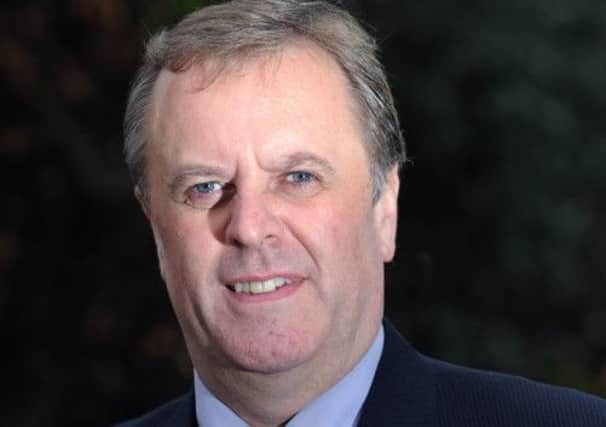Commissioner to meet MPs over Yorkshire supergrass scandal


Mr Burns-Williamson, elected as West Yorkshire’s first commissioner in November, released a statement insisting the case was “complex” as it was linked to “historic systemic failures” and the passage of time meant inquiries had been overseen by a series of different chief constables.
The commissioner’s move follows a Yorkshire Post investigation which detailed a catalogue of shocking misconduct by named officers who were meant to be supervising supergrass Karl Chapman in the mid to late 1990s.
Advertisement
Hide AdAdvertisement
Hide AdNo officers have ever been prosecuted or disciplined for their actions, prompting Leeds MPs Fabian Hamilton and George Mudie to publicly press the commissioner to hold police to account. Mr Hamilton said he was prepared to take the matter to the Home Secretary if necessary.
The wrongdoing led to convictions in two serious criminal cases being quashed in 2009, with both defendants pursuing damages claims against West Yorkshire Police which could exceed £500,000.
Chapman admitted more than 250 offences of burglary and robbery but agreed to inform against fellow criminals in return for a reduced sentence and cash. A six-year North Yorkshire Police investigation, which concluded in 2007, found police took Chapman to a brothel, allowed him to take drugs, to get drunk with officers and to begin a relationship with a policewoman. The raft of improper inducements, including falsely-recorded payments, were all concealed at subsequent criminal trials.
A Supreme Court judgment released in July 2011 delivered severe criticism of the police and prompted a fresh inquiry into why no prosecutions or disciplinary action had taken place. It was carried out by West Yorkshire Police, supervised by the Independent Police Complaints Commission (IPCC), but both the force and commissioner have so far refused to disclose its findings.
Advertisement
Hide AdAdvertisement
Hide AdIn a statement, the commissioner acknowledged he had been elected to scrutinise the police and insisted he “absolutely” acted in the public interest.
It added: “The next steps in this very complex case require careful consideration, not least in conjunction with the new Chief Constable Mark Gilmore. I have sought meetings with Fabian Hamilton MP and George Mudie MP and will be sharing relevant information where I can.
“I will also be lobbying the Government for a long overdue, much more efficient and effective complaints authority with the right capacity and capability to investigate cases such as this one and hold the police to account in the public interest and for additional powers for police and crime commissioners to take action on behalf of the communities they represent where people would expect them to be able to do so.”
The statement did not refer to any specific action the commissioner was preparing to take to hold West Yorkshire officers to account.
Advertisement
Hide AdAdvertisement
Hide AdThe police misconduct led to the quashing of Danny Mansell’s 1998 conviction for murdering Wakefield pensioner Joe Smales and the majority of Gary Ford’s convictions for burglary and robbery in 1996 also being overturned.
Both men were released in 2009 after spending a total of 20 years in prison on the basis of tainted evidence.
The conviction of Mr Mansell’s brother, Paul Maxwell, for the same murder was also overturned in 2009 but the Supreme Court ruled he could face a re-trial at which he subsequently pleaded guilty.
Although ruling Maxwell could be re-tried, the Supreme Court judgment also said the actions of officers amounted to perverting the course of justice, perjury and misconduct in public office.